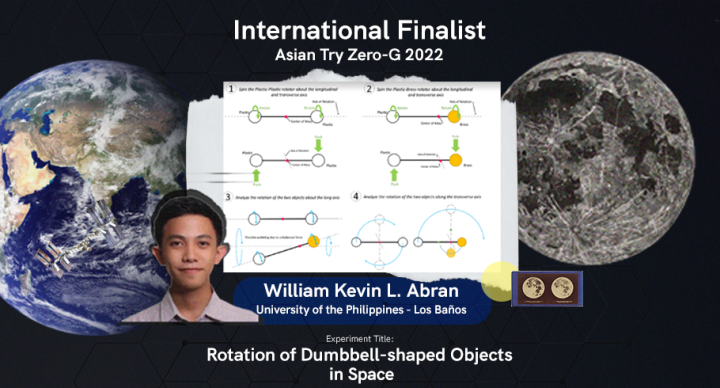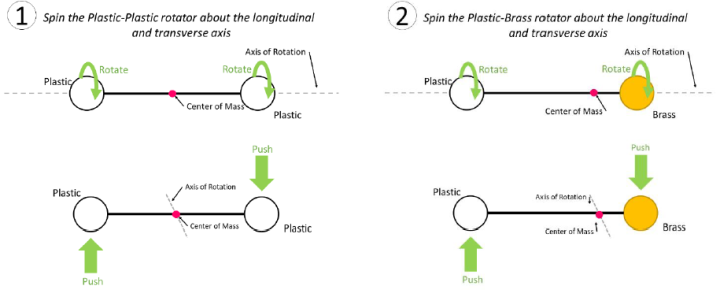The Philippine Space Agency (PhilSA) announced on Monday, June 27 that the Filipino science expirement entry, “Rotation of ‘Dumbbell-shaped’ Objects in Space” is among the chosen experiments to be performed in the International Space Station (ISS) through the Asian Try Zero-G (ATZG) 2022 competition.

Photo/ Philsa
William Kevin L. Abran from the University of the Philippines-Los Baños submitted the science experiment which made it through the 24 international ATZG finalists, and became one of the six chosen entries to be conducted by Astronaut Koicho Wakata at the ISS around September.
In a TikTok video, Abran’s experiment can be seen in action.
The experiment aims the long-term stability of the dumbbell-shaped objects’ rotations in a free environment, like in microgravity, as it’s difficult to simulate such motions on the ground, according to PhilSA’s press release.

Abran’S “Rotation Of ‘Dumbbell Shaped Objects In Space” Experiment | Photo/ Philsa
Japan Aerospace Exploration Agency’s (JAXA) point of selection reads, “This theme aims to systematically examine the behavior of rotating objects in orbit and the Dzhanibekov effect by means of two rigid bodies with different centers of gravity.”
JAXA launched the ATZG as an international cooperation experiment that encourages the youth in Asia-Pacific region to expand the use of ISS, Japanese experiment “Kibo” in contributing Sustainable Development Goals (SDGs) through development of human resource.
The PhilSA led the local screening of project proposals from May 9 – 29, and submitted five entries, including Abran’s to JAXA for final round of evaluation.
ATZG 2022 received 201 total submissions from 480 students, and young engineers/ researchers across eight Kibo-Asian Beneficial Collaboration-participating countries/ regions.
The proposals are evaluated according to scientific significance, novelty, safety, resource requirement, and feasibility.
Click here for more information on the finalized Asian Try Zero-G 2022 Experimental Theme.
Source: Yugatech

No comments:
Post a Comment